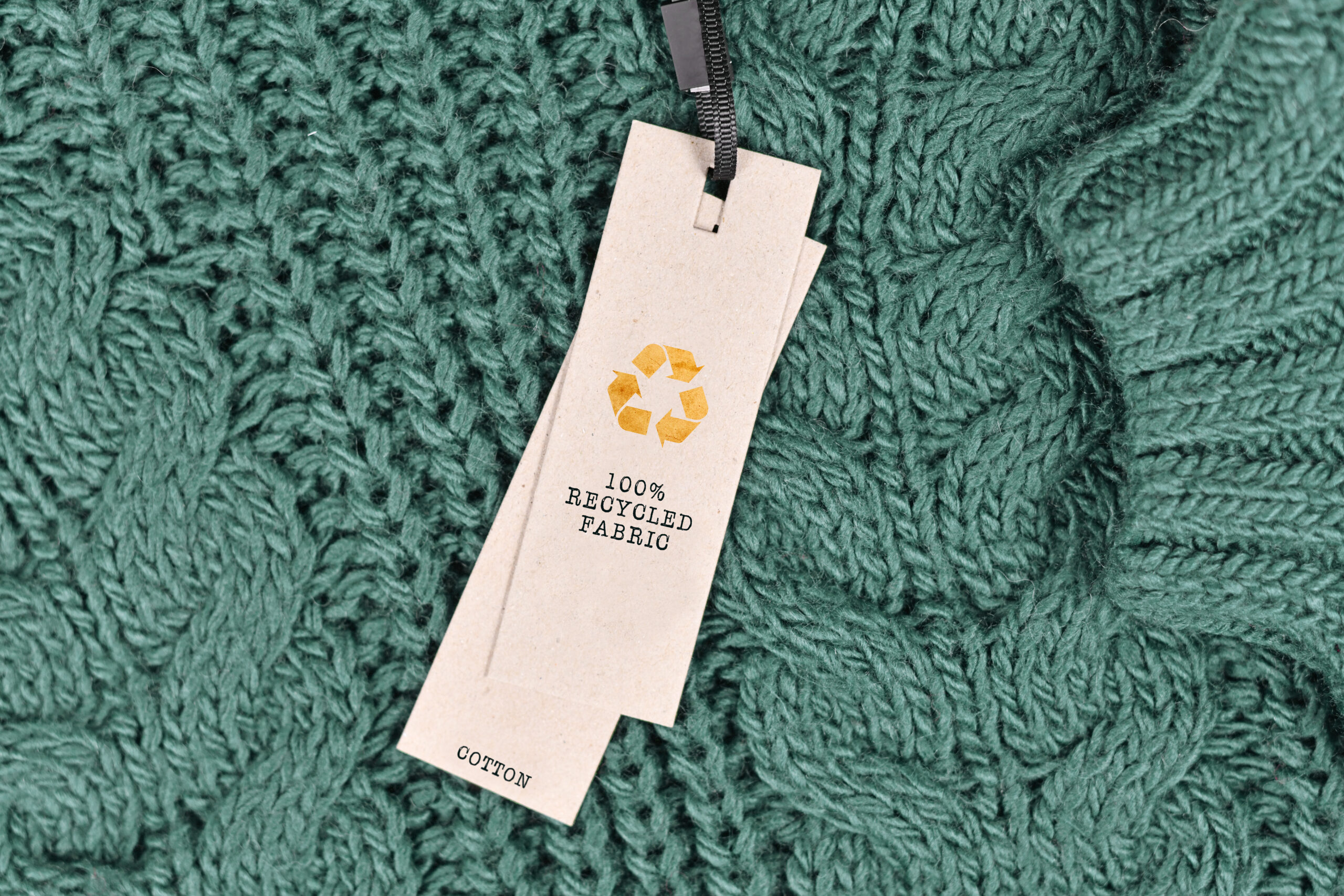Stay Ahead of the Curve by Exploring Innovative Style Fads
In a sector as vibrant as style, remaining in advance includes even more than simply complying with existing patterns-- it requires an expedition of development. Smart textiles, for example, are changing garments right into functional work of arts, while 3D printing is revolutionizing design processes with its adjustable, waste-reducing abilities. As sustainability ends up being a cornerstone, innovations like eco-friendly products and circular fashion techniques are improving environmental duty - Cape Town Sustainable Fashion. Moreover, the convergence of modern technology and style declares a new era of customer interaction. How, after that, can these emerging patterns redefine the future of fashion, and what effects do they hold for brand names looking for to prosper in this evolving landscape?

Embracing Smart Textiles
Over the last few years, the fashion business has actually seen a transformative shift with the combination of wise textiles, an advanced innovation that mixes modern technology with textile. This evolution represents not just a combination of aesthetic appeals and capability yet also a considerable leap in the direction of sustainability and personalization in fashion. Smart textiles, likewise known as e-textiles, embed advanced electronics such as sensing units and conductive strings within the fabric, allowing garments to communicate with the atmosphere or the user.
These fabrics are made to check physiological specifications, such as heart price or body temperature, supplying real-time wellness analytics. Beyond wellness applications, wise textiles are additionally being utilized for flexible clothes, which can alter shade or pattern in action to ecological stimuli, hence using a dynamic style experience.
Furthermore, the advancement of energy-harvesting fabrics that produce power from activity or sunshine is leading the way for self-dependent wearable modern technology. This technology is attracting ecologically mindful consumers and developers aiming to minimize the environmental impact of style. As r & d in this field advancement, smart textiles are expected to come to be increasingly common, improving the landscape of modern style with their multifunctional capacities.
The Rise of 3D Printing
Revolutionizing the production landscape, 3D printing has become a game-changer in the garment industry. This sophisticated technology has actually enabled developers to push the boundaries of creative thinking, creating detailed and tailored garments that were previously unimaginable. By leveraging digital design and additive production, 3D printing promotes the production of intricate geometries and patterns, permitting designers to explore new structures and frameworks.
A notable advantage of 3D printing in fashion is its capacity to create on-demand, lessening waste and decreasing supply needs. This performance not only enhances production procedures however additionally enables fast prototyping, allowing developers to bring their visions to life in a shorter duration. Furthermore, 3D printing supports customization to a degree unrivaled by typical methods, providing distinct layouts and individualized fits customized to individual customer preferences.
The surge of 3D printing has actually additionally democratized style, making it available to emerging designers that can now fabricate premium pieces without substantial financial investment in conventional manufacturing infrastructure. As technology continues to breakthrough, the fashion business is positioned to harness the full capacity of 3D printing, discovering new products and techniques that will undoubtedly redefine how style is conceived and produced.
Lasting Fashion Advancements
As the apparel industry faces journalism demand for environmental duty, lasting style developments have actually arised at the center of transformative modification. The growing recognition of eco-friendly effect has sustained a shift towards more eco-conscious methods and materials. Brands and designers are now prioritizing sustainability, including techniques that lessen waste and minimize go to my blog carbon footprints.
One considerable advancement is the surge of circular style, which stresses recycling and upcycling to extend the lifecycle of garments. This approach not just minimizes waste but likewise urges consumers to embrace a much more mindful approach to clothes usage.
One more breakthrough lies in the fostering of cutting-edge dyeing methods visit homepage that use all-natural dyes or waterless procedures, thus decreasing the huge quantities of water and chemicals typically utilized in textile dyeing. In addition, improvements in biotechnology have actually resulted in the creation of lab-grown leather and textiles, offering cruelty-free and eco-friendly options to standard products. With these introducing initiatives, the fashion business is making purposeful strides in the direction of an extra lasting future.

Tech-Integrated Apparel
Tech-integrated apparel represents a revolutionary combination of style and modern technology, reshaping just how people communicate with their apparel. This innovative domain name is marked by the inclusion of smart textiles and ingrained digital parts, enhancing both capability and visual allure. From fitness trackers installed in sports apparel to heated jackets managed via smartphone applications, tech-integrated apparel supplies consumers unmatched convenience and flexibility.
Introducing brand names are driving this pattern, concentrating on developing garments that react to environmental stimuli or customer commands. For example, some garments can alter color or pattern in reaction to temperature changes, while others include biometric sensing units to monitor health metrics like heart price or anxiety degrees. The smooth combination of innovation right into textiles also includes environmental sustainability, with efforts to create self-cleaning materials or garments that get used to weather problems, therefore decreasing the demand for several layers.
Moreover, the advent of wearable modern technology is not find just restricted to clothes yet includes devices like watches and glasses, further expanding the extent of tech-integrated style. As the sector remains to introduce, the capacity for modification and customization in clothing expands, using consumers unique, tech-enhanced style experiences that cater to their private demands and preferences.
Future of Virtual Fashion
Recently, the future of online style has emerged as a transformative pressure within the sector, leveraging innovations in digital innovation to redefine just how fashion is produced, experienced, and consumed. By integrating augmented fact (AR), virtual truth (VIRTUAL REALITY), and 3D design tools, designers can currently craft immersive and interactive experiences that transcend conventional fashion boundaries. Virtual fashion permits the creation of garments that exist solely in digital environments, using limitless possibilities for development without the constraints of physical manufacturing.
This electronic shift not only presents chances for creative expression but likewise addresses sustainability worries fundamental in typical style practices. Cape Town Sustainable Fashion. By getting rid of the requirement for physical sources, digital style reduces waste and decreases carbon footprints. Furthermore, the increase of digital style lines up with the increasing consumer demand for unique and individualized experiences, as virtual garments can be customized and tailored to private preferences easily

Verdict
The apparel industry's future hinge on the combination of lasting methods and cutting-edge innovations - Cape Town Sustainable Fashion. Smart textiles and tech-integrated apparel are enhancing capability, while 3D printing offers possibilities for customization and waste decrease. Lasting style, via circular approaches and eco-friendly products, shows a dedication to environmental stewardship. In addition, online fashion is poised to redefine consumer communications. Adapting to these trends is crucial for brand names looking for to continue to be competitive and appropriate in this rapidly developing landscape.
In recent years, the fashion market has actually experienced a transformative change with the assimilation of smart textiles, a cutting-edge technology that blends modern technology with textile.As the fashion sector grapples with the pressing requirement for environmental obligation, sustainable style innovations have arised at the center of transformative modification.In recent years, the future of virtual fashion has emerged as a transformative force within the market, leveraging improvements in digital technology to redefine how fashion is developed, experienced, and eaten. The increase of online fashion lines up with the increasing customer demand for personalized and special experiences, as virtual garments can be tailored and tailored to individual preferences with ease.
The fashion sector's future lies in the integration of sustainable techniques and innovative innovations.